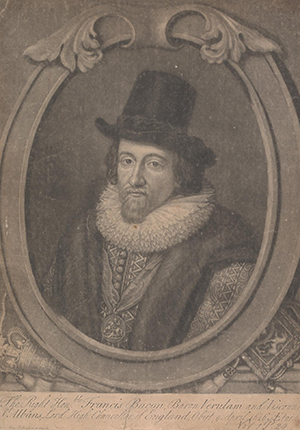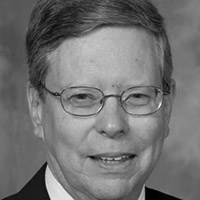Historic Document
“Selected Excerpts” (1620)
Francis Bacon | 1601

Yale Center for British Art, Paul Mellon Collection
Summary
Sir Francis Bacon (1561-1626) was the author, in ever-expanding editions, of what was eventually called Essays or Counsels Civill and Morall (1597, 1611, 1625) and Of the Proficience and Advancement of Learning Divine and Human (1605), Novum Organum (1620), The New Atlantis (1627), and a host of other works. Although Bacon’s essays were more accessible than the other works mentioned above and were more often cited in North America, his greatest impact on the Founding generation was due to his championing of the new science, with its emphasis on the application of reason (in Greek, logos) to the mechanical arts (technai) for the conquest of nature, and to his defense of the harnessing of commerce and the new science implicit in English law. It speaks to the consensus in the fledgling United States that the Patent Clause included within the U.S. Constitution was in no way a source of controversy.
Selected by

Paul Rahe
Professor of History and Charles O. Lee and Louise K. Lee Chair in the Western Heritage at Hillsdale College

Jeffrey Rosen
President and CEO, National Constitution Center

Colleen A. Sheehan
Professor of Politics at the Arizona State University School of Civic and Economic Thought and Leadership
Document Excerpt
Speech in Parliament in Defense of the Practice of Issuing Patents of Monopoly (November 20, 1601)
If any Man out of his own Wit, Industry, or Endeavor, find out anything Beneficial for the Common-wealth, or bring any New Invention, which every subject of this Realm may use; yet in regard of his Pains, Travail, and Charge therein, Her Majesty is pleased (perhaps) to grant him of Privilege to use the same only by himself, or his Deputies, for a certain time.
Of the Proficience and Advancement of Learning, I. v.10-11:
Other errors there are in the scope that men propound to themselves, whereunto they bend their endeavours . . . . But the greatest error of all the rest is the mistaking or misplacing of the last or furthest end of knowledge. For men have entered into a desire of learning and knowledge, sometimes upon a natural curiosity and inquisitive appetite; sometimes to entertain their minds with variety and delight; sometimes for ornament and reputation; and sometimes to enable them to victory of wit and contradiction; and most times for lucre and profession; and seldom sincerely to give a true account of their gift of reason to the benefit and use of men: as if there were sought in knowledge a couch whereupon to rest a searching and restless spirit; or a terrace for a wandering and variable mind to walk up and down with a fair prospect; or a tower of state, for a proud mind to raise itself upon; or a fort or commanding ground, for strife and contention; or a shop, for profit or sale; and not a rich storehouse for the glory of the Creator and the relief of man’s estate. But this is that which will indeed dignify and exalt knowledge, if contemplation and action may be more nearly and straitly conjoined and united together than they have been.
Novum Organum, 1.129:
It remains for us to say a few words on the excellence of our proposed end. . . . First, then, the introduction of great inventions appears one of the most distinguished of human actions, and the ancients so considered it; for they assigned divine honors to the authors of inventions, but only heroic honors to those who displayed civil merit (such as the founders of cities and empire legislators, the deliverers of their country from lasting misfortunes, the quellers of tyrants, and the like). And if any one rightly compare them, he will find the judgment of antiquity to be correct; for the benefits derived from inventions may extend to mankind in general, but civil benefits to particular spots alone; the latter, moreover, last but for a time, the former forever. Civil reformation seldom is carried on without violence and confusion, while inventions are a blessing and a benefit without injuring or afflicting any. . . .
Again, we should notice the force, effect, and consequences of inventions, which are nowhere more conspicuous than in those three which were unknown to the ancients; namely, printing, gunpowder, and the compass. For these three have changed the appearance and state of the whole world: first in literature, then in warfare, and lastly in navigation; and innumerable changes have been thence derived, so that no empire, sect, or star, appears to have exercised a greater power and influence on human affairs than these mechanical discoveries.
It will, perhaps, be as well to distinguish three species and degrees of ambition. First, that of men who are anxious to enlarge their own power in their country, which is a vulgar and degenerate kind; next, that of men who strive to enlarge the power and empire of their country over mankind, which is more dignified but not less covetous; but if one were to endeavor to renew and enlarge the power and empire of mankind in general over the universe, such ambition (if it may be so termed) is both more sound and more noble than the other two. Now the empire of man over things is founded on the arts and sciences alone, for nature is only to be commanded by obeying her.




